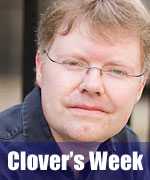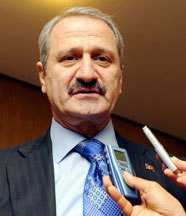By Takako Taniguchi and Steve Bryant – Nov 26, 2010 2:11 PM GMT+0100
Turkey plans to sell $2 billion of Samurai bonds partly guaranteed by the Japan Bank for International Cooperation as it gathers advance financing for next year’s budget.
The proposed sales will be made by the end of this year, Hiroshi Watanabe, chief executive officer of the state-run Japanese bank, known as JBIC, told a press conference today in Tokyo. The Treasury said work on a sale was “advanced” and declined to give a size or date for the offer, according to an answer to Bloomberg questions provided by the press office.
Turkey has sold $6.7 billion in foreign debt this year, meeting its goal for 2010 and drawing $695 million in pre- financing for the 2011 budget, according to the Treasury. The country expects an increase to its credit ratings after parliamentary elections in June next year, Finance Minister Mehmet Simsek said in London on Nov. 23.
The country has been in talks with Japan all year on a possible Samurai offering, the first since November 2000, when Turkey raised 50 billion yen ($544 million) in three-year notes.
The Treasury said last month it expects to raise 12.5 billion liras ($8.9 billion) in external financing for the 2011 budget. That figure includes payments from international lenders such as the World Bank and the European Investment Bank. It didn’t give a target for foreign bond sales.
Rating
Fitch Ratings on Nov. 24 revised the outlook on Turkey’s BB+ local and foreign-currency bond rating to positive from stable, citing a strong economic recovery and improving public finances.
The Fitch rating is one step below investment grade. Moody’s Investors Service raised the outlook on Turkey’s Ba2 rating, two levels below investment, to positive from stable on Oct. 5. Standard & Poor’s ranks Turkey an equivalent BB.
Turkey aims for a budget deficit of 33.5 billion liras in 2011, or about 2.8 percent of gross domestic product, according to the government’s medium-term plans. The deficit this year is forecast at 4 percent of GDP.
To contact the reporters on this story: Steve Bryant in Ankara at [email protected]; Takako Taniguchi in Tokyo at [email protected]
To contact the editor responsible for this story: Peter Hirschberg in Jerusalem at [email protected]




